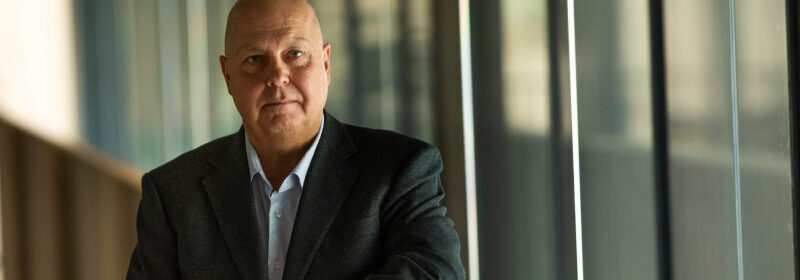Expect pain, not largesse, from a tough Victorian budget

Save articles for later
Add articles to your saved list and come back to them any time.
While the Victorian government has given precious little away ahead of Tuesday’s state budget, the signs are ominous that there will be more cuts than handouts. Indeed, the near silence ahead of the parliamentary reveal by Treasurer Tim Pallas this afteroon, speaks volumes when compared with the deluge of hints, leaks and promises crafted to sell the federal budget ahead of its unveiling earlier this month.
What we do know is that the Andrews government has made strong warning noises about the need to start significantly paying down some of its ballooning debt, which ran out of control during the pandemic and is now expected to reach $166 billion by mid-2026.
Put another way, by 2025 an estimated 8¢ of every dollar raised by the government will have to be funnelled into making interest payments. Victoria now has the highest debt in proportional terms of all the states.
The burden has been ameliorated somewhat by judiciously locking in low borrowing rates through the sale of very long-term government bonds. But much like those millions of Australian home owners who took out a cheap fixed-rate mortgage in 2020 or 2021, Victoria will eventually have to tackle its own debt cliff. Sooner is better than later.
On Sunday we reported the budget would contain a so-called “COVID-19 Debt Repayment Plan” that is expected to chip $31.5 billion off the emergency debt raised at the height of the pandemic. On Monday Deputy Premier Jacinta Allan confirmed paying down borrowings was an important task and that the time had come “to look at addressing those COVID payments that were made”. This is all well and good; the question, of course, is how.
Treasurer Tim Pallas has been keeping his head down.Credit: AAP
There are a limited number of ways in which the state government can quickly raise extra money, although The Age has reported that new tax income is certainly on the agenda. It is more likely that the focus will be largely on trimming public service jobs and winding back some of the hundreds of programs whose funding has not yet been guaranteed into the next financial year.
In March we learnt the Department of Treasury and Finance had ordered government department heads to cut their budgets by 10 per cent, which we calculated could cost 5000 back-office jobs. Meanwhile, the independent Parliamentary Budget Office has identified 372 projects from road maintenance to domestic violence support that will lapse unless their funding is renewed on Tuesday.
Paying back what we owe is essential unless we are to saddle future generations with a burden that will compromise their way of life. At this stage in the electoral cycle, and with the prospect of higher borrowing charges in future as our low borrowing rates effectively expire, the time is now for some serious belt-tightening. As economist Saul Eslake told us, “The first budget after a fairly emphatic victory is probably the least worst time to be doing it”.
That said, we cannot allow the Andrews government to get away with blaming all of its fiscal problems on the pandemic and the Reserve Bank’s ill-advised predictions that rates would not rise in the near term.
It has always spent freely, especially on major infrastructure, often gorging on historically low borrowing costs.
Now it’s been caught out by not just the interest rate cycle but rising labour costs, stalled population growth and, like governments the world over, inflation. “In reality,” writes state political editor Annika Smethurst, “the deterioration of Victoria’s budget position was well under way before COVID hit, with deficits and debt slowly rising since 2017.”
Like so many everyday home owners, it now falls to the erstwhile big spenders at Spring Street to pivot to frugality after enjoying so much largesse. Cutting back on the occasional latte will not do it: this will require a wholesale rethink.
As early as March, Premier Daniel Andrews was flagging difficult decisions would have to be made. A tough, even horror, budget feels inevitable. It only remains to be seen who it will hurt most.
Patrick Elligett sends an exclusive newsletter to subscribers each week. Sign up to receive his Note from the Editor.
Most Viewed in National
From our partners
Source: Read Full Article
